
Lost Frequencies: “I went a little bit into the footsteps of Where Are You Now with Questions.” Photo: Rafael Deprost
Using single ‘Questions’ as an example, the ‘Where Are You Now’ star discusses his process – but is it songwriting?
When Where Are You Now featuring Callum Scott reached the top of the Dance Chart last year, it cemented Lost Frequencies’ position as one of the very finest dance-pop acts currently on the scene. At the time of writing, it remains in the Top 100 of the Official Singles Chart where it has been enjoying life for more than 40 weeks – and that’s not to mention over 600 million streams on Spotify alone. Such success is the culmination of a journey that started back in 2014 when bedroom producer Felix De Laet uploaded his first remix to Soundcloud and gave birth to his Lost Frequencies moniker.
With early success built on remixing tracks such as Easton Corbin’s Are You With Me, the song that made De Laet the first Belgian artist to secure a UK No 1, he has evolved into an artist whose music has a clear songwriting heart. One example is recent single Questions, written with Bastille’s Dan Smith and featuring lead vocals from James Arthur. As with Where Are You Now, strip the track of its club-friendly accoutrements and you’d be left with a soul-searching ballad that would no doubt be wracking up just as many streams. Lost Frequencies’ stripped-back live shows also play to these strengths and upcoming festival slots and live shows promise to be real highlights for the remainder of the year.
Keen to learn more about the line between producing and songwriting, the evolving Lost Frequencies process, and the writing of Questions, we sat down for a fascinating chat with De Laet…
Click here for more interviews
Where are you today?
“I’m in my studio in Brussels.”
Are you working on new stuff?
“I’m supposed to be but I have so much to do this morning. I’m leaving tomorrow for some shows in Ibiza so I hope to have some time to work on music this afternoon. I mean, it’s in the schedule, but you never really know how it comes at the moment. There’s so much stuff going on and the inspiration has to be there.”
Do you try and work on music every day?
“My little problem at the moment is that I have so many shows that my studio moments have to be planned. But I don’t really like to have my studio days planned, I like it to flow more. Today is supposed to be a studio day.”
Are there things that you can do to get yourself in the mood?
“After this interview, I will eat with my family and do my mail and then I will have done everything that I was supposed to do in the morning. In the afternoon, I can put aeroplane mode on and just be in the studio.”
Could you talk us through the process of writing Questions?
“I’ve been working with Bastille’s Dan [Smith] as a songwriter and he’s been sending me a lot of demos. I was at the studio, we’d be working on some music together, and he sent me a demo of Questions which I then get his voice from and I do a whole production around it. Since I was already working with him on another track, we tried to find someone else to sing it. James Arthur happened to hear it and love the track.
“He really put his version down and I think he made a very cool version with his voice on it. So it was working with the songwriters of the tracks and taking that first performance into my production process where I add my touch, my sounds. I tried to make it really Lost Frequencies-ish and a more finished product with another singer, and then mix mastering and then it’s out.”
Did Dan give you a very sparse demo?
“A lot of people are sending me stuff because they want me to work with me. When I hear a demo that’s already half-produced, I don’t like it and don’t want it, because it already has a specific direction and I want it to be as broad as possible, in terms of where I can go with it. Usually, I like to have demos that are just a guitar, piano and voice so it’s really easy for me to picture myself working on it.
“Questions already had production, so I took that all away, because that’s what I don’t like. I started again from zero because, otherwise, I lose my sounds. So I completely changed even the chord progressions and a lot of things. From there on, I just vibe with my guitarist. I go to my guitarist, we record a lot of stuff together, and then I come back into the studio. One of my favourite moments is when I take those guitars and put them into a project, because that’s when you start to have this blend of electronic music with those guitar sounds and the voice on top. That’s when I feel this is more like the signature sound of Lost Frequencies. That’s the process I really like to do.”

Lost Frequencies: “I started in my bedroom with just a laptop.” Photo: Rafael Deprost
And that signature sound is something you’re very clear about?
“Yes. Because the thing is, I play a lot of electronic music festivals where the music is harder, but I actually try to get away from it as much as possible because the music that I listen to the most is indie-rock and reggae. I’m also a big lover of electronic music, especially when it comes down to sound design and to crazy arrangement ideas and stuff like that. So I get inspired by both worlds, but when it comes to lyrics and stuff like that, I’m leaning more towards pop/indie-rock vibes.”
Who are some of the acts that you’re inspired by at the moment?
“I will tell you the things I added recently to my playlists… There is this guy Lo-Fang that I really like. There’s Sohn that has an amazing album, one of the track’s, Veto, is super cool. Jaden, he released a cool track also, which has more of a hip hop vibe. I discovered Tinlicker, which is very sad for me because they’re a big act and I only just discovered them. It’s very mellow electronic music, so that’s also on my playlist. It can be any style, if it’s my vibe and I like it, it just comes into my playlist.”
Are there two stages of listening for you – listening as a fan of music, but also listening as a producer trying to find little tricks that you can use in your own songs?
“That’s why I really like indie-rock, because it’s so far away from what I’m producing I actually get to enjoy the music and not think about the production and I just vibe to it. When I listen to electronic music, if it’s not well produced, then I don’t really like to listen to it. So it’s very specific when I listen to electronic music. That’s why, when I’m alone, it’s mostly something that doesn’t get my producer head working; the vibes and atmosphere is most important for me, like a lot of reggae music where the mix is not really well done but it’s more the whole attitude towards the music, that’s something I really enjoy and can relax to.”
Going back to what you said about building the sound on top of those demos, is it the demos themselves that inspire the production or do you already have sounds in your library that you want to use and you’re waiting for the right song to come along?
“It depends. I have a lot of instrumentals on my computer, where I do a lot of demos like sound-wise that I could use. I have a lot of hardware in my studio. There’s so much stuff going on with the synthesisers and sometimes sounds inspire me and I really want to use a specific sound. Or sometimes the demo inspires me. But that’s more arrangement-wise, sound-wise it’s usually the part where I just mess around and try to find a specific sound, different sounds. And those sounds usually inspire me to use them.”
How did that work on Questions?
“That was actually a small fight with the label because I made the first drop, which was a little bit too club-ish, so we had to soften it down. If you listen to the first drop, the first chorus part, there is a guitar and James Arthur’s voice on it. If you listen well, in the back there is a synthesiser that goes more tremolo-ish, but very rhythmic, and on the version I sent first, that was the main idea. That was the thing pushed in front. And then they were like, ‘Yeah, it’s a bit too much,’ so I put it in the back and put the guitar on top, to make it more pop.
“But now in the live show, that came back and it’s a moment where the synthesiser is in your face for some time and then the vocal comes on top and the guitar comes in. It was a sound that had really inspired me, that was different than I had in other songs and I feel it was not a harsh sound, it was a very mellow sound. I liked the sound design, so I was trying to push it. It’s still there somewhere if you listen to it.”
Do you prefer live instruments?
“I really like live sounds. Recently I’ve been working on the live show. I usually perform a lot of DJ sets and I did my first live show this weekend actually. It was the singer, drummer, live guitarist, live keyboardist and I’m playing keyboards too. What I like about it… the music I produce is very tight, it’s very on point with the metronome and every sample on the right spot. When we play live, I have to deconstruct it and accept that it’s not going to be as tight or as perfect. The drummer, he plays amazingly well but he’s not a machine, he’s almost like a machine but he’s not a machine. It grew on me, this vibe that sometimes it’s not perfectly on point and that things can be more human. At the very beginning when I was producing, everything had to be perfect. Now, some things can be loose and more relaxed.”
How many instruments do you play?
“I do the very rough demo guitar recording but then I go back to the guitar player that’s playing in the live show where we record it. I play keyboards, all the drum sounds, I do it myself, but I don’t play the drums. But I record everything in the studio and I make them more swing than I used to do before. I was working with real musicians on live shows and that really helped me to grow as an artist.”

Lost Frequencies: “I do pay a lot of attention to the lyrics.” Photo: Rafael Deprost
One of the things that we always say is that you know a good song because when you take the production away and strip it back to its core, it still stands out…
“I really am in a luxury position where I am a producer/DJ, and I think for a lot of singers it’s good to do collaboration with the DJ. So all these singers, they have amazing stuff they’ve been working on that they don’t really release, or they don’t really know what to do with it. So I get a lot of demos from amazing singers and get to choose from them, which is very cool for me.
“But I don’t want to do just that, I also want to have my instrumentals that are sometimes a little bit out of my world that I’m sending to those guys also. So I like to have both ways. But yes, of course, when I get all those different demos from singers and songwriters that are amazing acts, I choose my favourites from that and I put my sound in it, the basic song is already very strong.”
You describe yourself as a producer and a DJ, would you describe yourself as a songwriter?
“Maybe more the musical parts, but when it comes down to lyrics, I don’t think my English is the best. I do pay a lot of attention to the lyrics. In all the tracks I’ve been releasing you don’t really have those more typical dance vocals about going out drinking, taking drugs and having a great night, or talking about hooking up with some girls. You know, it’s more subtle than that. It’s more indie and sometimes more poppy, I have an ear for that. I am happy to say that I can work with amazing songwriters around me to really nail this part down, I don’t think I am the best songwriter alone.”
Do you have any input into the lyrics?
“I’ve had a few times when there’s a whole track I really like, but within the first verse, there are some lines I really don’t like and then I talk about it with the songwriters. Like, ‘Can we change something and talk more about the courage to talk about this,’ and take a few elements and put it in front. They’ll make variations and then we choose together from it. Also, usually the first few lines of the first verse… I don’t know why, but sometimes in the dance-music world they like to do the typical cheesy lines like, ‘We’re going out tonight,’ and stuff like that. I’m like, ‘No, no, let’s take this away.’”
A lot of our readers would describe themselves as bedroom songwriters/producers, is that how you started?
“Oh yeah, I started in my bedroom with just a laptop. I didn’t have a mic. I bought one plugin, a synthesiser, on the MacBook Pro and I started producing on GarageBand and then on Reason. I really liked Reason and then I went to Logic. I’m still on Logic today. I was a bedroom producer and I’ve only had my studio for one year, my real professional studio, where I can work even at nights and don’t disturb the neighbours.
“I’d been a bedroom producer for five years and then the gear started to come: a good speaker, a good sound card, a mic to record some demos. Then I bought my first synthesiser which was a Moog synthesiser, Sub 37. That’s been a very big game changer for me, sound design-wise, because I read the whole manual and I had a lot of fun discovering it. I’d been teaching myself on YouTube. I didn’t take classes about anything I have in my studio, it’s all self-taught. I’ve been kind of slow in that process, but it’s been very interesting.”
And would you say that working on remixes was the starting place?
“Firstly, I did tonnes of instrumentals. In the very beginning, I had hundreds of instrumentals that I just put on SoundCloud, I was sharing so much stuff. At some point, I got really bored of just making instrumentals so I started to make remixes and sampled voices from the internet. That’s when I started the Lost Frequencies project, because I thought it would be fun to remix old tracks and make deep-house versions, and all those old tracks would be the lost frequencies that I take back. That’s actually where my name comes from.
“Since then I’ve been sampling and working with vocals. It’s been super fun. I also started to use guitar sounds because those were the songs I didn’t use because I didn’t play the guitar back then, and I didn’t have a mic also. I used guitars and vocals that I sampled from the internet. That’s when Lost Frequencies started to grow, because I think it was more accessible sound-wise.”

Lost Frequencies: “I do trial and error work but I figure out really quickly if I’m working on an error.” Photo: Rafael Deprost
Using your Easton Corbin remix, Are You With Me as an example, what is it that you hear in the vocal that you know is going to work with with your instrumentals and your beats? Or is it a case of trial and error and we don’t get to hear the ones that didn’t work?
“I’m mostly a guy that, if I start a track and I’m halfway to the point where it’s gonna get done, it’s probably going to get released somewhere. I’m probably going to upload it. There is not a lot of stuff on my laptop that you didn’t hear, except really rough demos. So I do trial and error work but I figure out really quickly if I’m working on an error!
“The track with Easton Corbin, I really wanted to make a track that was just really clean guitar sounds, a bass and a kick. I’d been listening to electronic music for a lot of time and I always liked the electronic music tracks with guitars in, but there was not a lot of electronic music with clean guitars; usually, it’s obviously a sample or you can hear that it wasn’t really made for the electronic music track.
“Then there was this track One Day by Wankelmut that came out with an acoustic guitar and beat in the back. The first version was really inspiring and the kind of music that I really wanted to discover. I was looking for easy guitar to sample but that also had feelings. When I found the original version of Are You With Me, the first 16 bars with the guitar looping and you have the first verse coming in, which was going to be the chorus for me, it was super easy to sample. So I just took it, put it up and made my version out of it. I knew what I wanted to do with it when I heard the first version.”
What advice would you have for people who are trying to emulate what you’ve done?
“It’s hard to say because I grew as a bedroom producer seven years ago and at that point SoundCloud was super big and we had a super nice community and YouTube was more accessible; everybody was posting a lot of remixes and stuff on YouTube. I was posting one track a week on SoundCloud and then everybody was reposting and sharing, to help grow your profile. Then also with Facebook, there was a synergy. Everything was easy to put in place and to really grow as an artist producer.”
And that’s not the case now?
“Now they’re gonna tell you to use TikTok to promote yourself, which is something I’m less a fan of. If I had to start again, I would go back to SoundCloud and create my profile, because I think there’s still a community over there of people trying to discover up-and-coming acts and producers. Then every week, share something. You’re up-and-coming, it’s not like people are expecting you to come out with the best stuff every week. Then hopefully one track gets picked up from a YouTube channel that likes to support it and another track, maybe someone else wants to remix it.
“It’s not that easy now with the internet, there’s so much possibilities – things you can do and ways to share your music – but that means that there’s also so many people doing it. I think you have to be creative and try to stand out with the sound. It’s also how you present yourself on social media. Nowadays you don’t have to be only a producer, you also have to be a social media manager, you have to be your own management in the beginning, you have to understand your own branding. That’s not an easy thing to do.
“Really have a plan. Know where you are going and not doing every different style of music. Go to a specific direction and hold this direction for some time before going somewhere else. So if someone comes to your page and sees what you’re doing, it all makes sense”
Talking of trying to find their own sound and being consistent, when you have a song which is as massive as Where Are You Now, is the temptation to try and repeat that success? Or is it the reverse, you have to try and do something a bit different?
“I went a little bit into the footsteps of Where Are You Now with Questions, with the sound design and the atmosphere. I like to have a follow-up, something that follows the vibe, so that if I have new fans I’m not gonna do a steep turn and go completely in a different way. But I’m going to do maybe one more and then, for the next one, I’m going to do something slightly different and go back to trying to be creative. But I didn’t want to go completely the other way because also, Where Are You Now is still playing on the radio at the moment and it felt right to do something in this vibe, but it’s still in my atmosphere, of course.”
What else is coming up over the next couple of months?
“I’m going to try to finish the album because, in October and November, I’m actually touring throughout the US and Europe with the live show. So I’m doing a whole tour with the band, stepping away from the DJ world and more towards touring like a band, which is a very cool atmosphere. The show starts at 9:30, which is very different from the DJ shows when you start at 2:30. So I’m looking forward to that. I’m going to travel across the US and Europe with the live show and then after that I’m gonna go to Asia, because it’s opening up again after the whole COVID situation and then I’m going on holiday in January.”
You can find music, tour dates and much more at lostfrequencies.com
Click here for more interviews


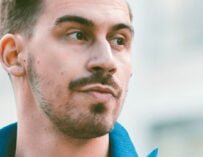
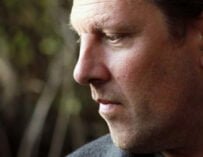
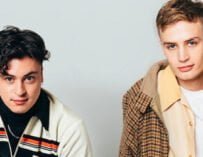
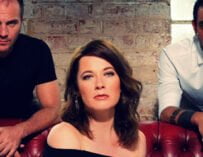


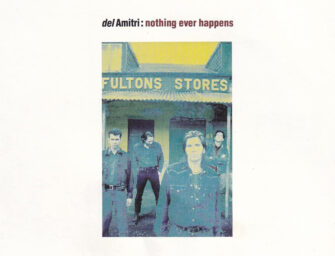

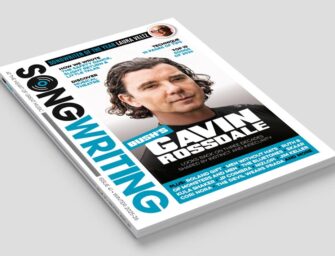
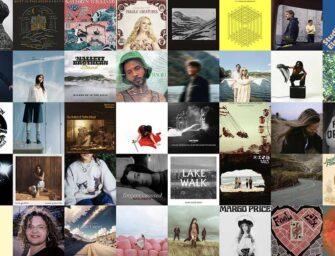





















Related Articles